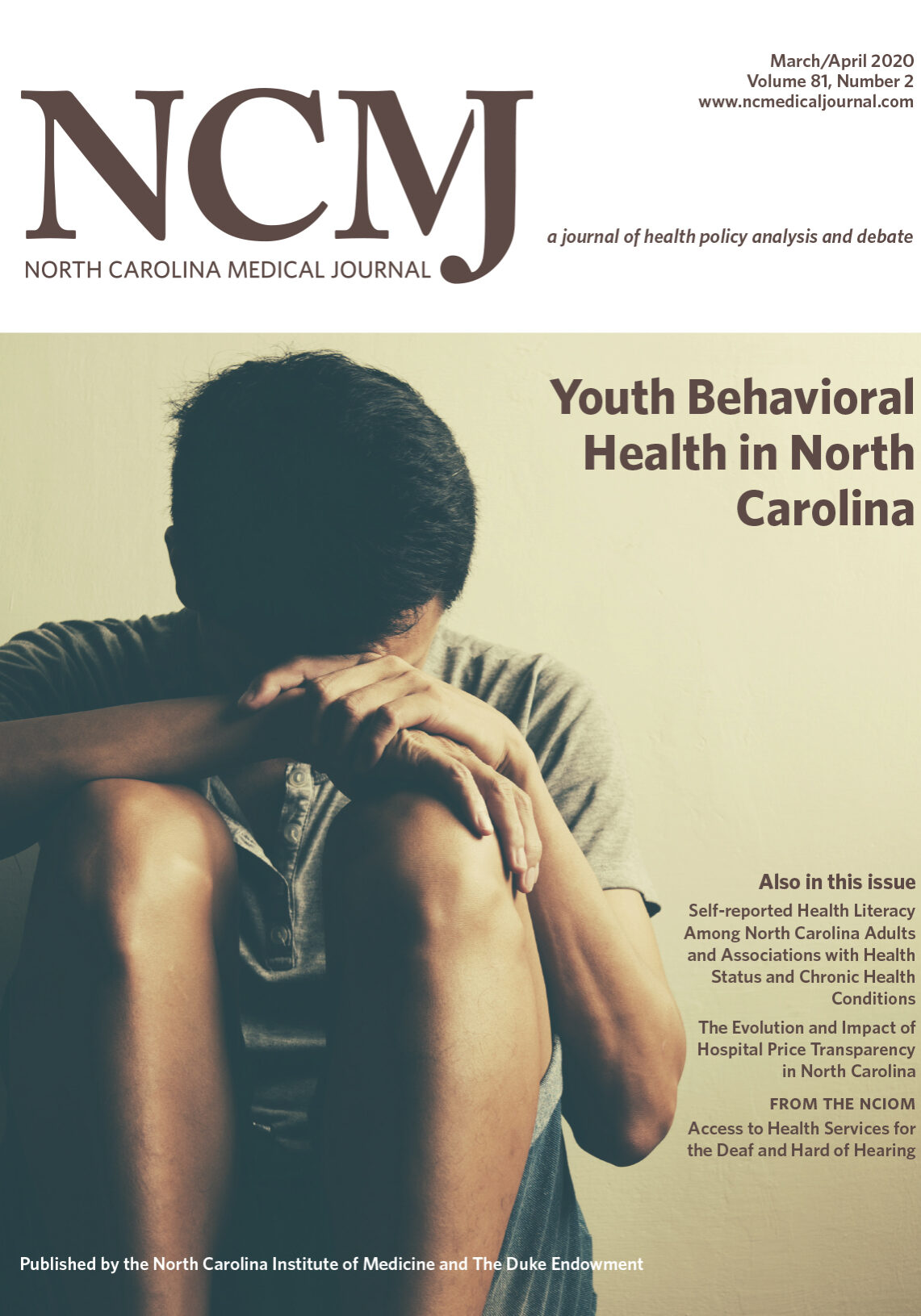


The latest issue of the North Carolina Medical Journal takes a dual approach to addressing youth behavioral health in our state. As guest editor Kurt D. Michael, PhD, of Appalachian State University writes, “The optimism centers on the joys of birth, the wonderments of childhood and adolescence, and the discoveries and connections between families and cultures among and within North Carolina communities. The sense of urgency pertains to the current epidemiologic realities for youth between the ages of 10 and 21 and the growing economic and health care disparities impacting the vast majority of North Carolinians.”
About half of mental health conditions are diagnosable by the age of 14, and about three-quarters emerge by the age of 24, Michael writes. The most common mental and behavioral health concerns for people in this age group are depression, anxiety, ADHD, substance misuse, and suicidal thoughts.
Suicide has become one of the leading causes of death for young people in North Carolina. Attention-deficit hyperactivity disorder (ADHD) has a major impact on kids, but diagnosis inequities persist. Providing school mental health is an increasingly demanding proposition. But at the same time, researchers and providers are coming up with innovative ways to address the crisis, from telehealth, to examining the benefits (as well as drawbacks) of social media, to making psychological science more accessible to the average patient.
Click the links below to read each article in this issue:
Issue Brief
Youth Mental Health in North Carolina: Creative Innovations in Challenging Times by Kurt D. Michael, PhD
Commentaries & Sidebars
Responding to Adolescents at Risk of Suicide: Implications of the Idea-to-Action Framework by John Paul Jameson, PhD
Youth Suicide Legislation in the 2019 Session of the North Carolina General Assembly by Jason Moran-Bates, JD
Mental Health Services in North Carolina’s Public Schools by Brandon K. Schultz, EdD, NCSP, Deanna Al-Hammori, BA, Karlie Mirabelli, MA, Lauren Gaither, MA/CAS
Addressing Students’ Mental Health Needs via Telehealth by Steve North, MD, MPH, FAAFP
The Impact of Social Media on Youth Mental Health: Challenges and Opportunities by Jacqueline Nesi, PhD
Helping Give Away Psychological Science: Putting Information and Resources Where the Public and Professionals Can Find and Use Them by Eric A. Youngstrom, PhD
ADHD in North Carolina: Prevalence, Treatment, and Looking to the Future by Will Canu, PhD
Disparities in Behavioral Health Diagnoses: Considering Racial and Ethnic Youth Groups by Brenden A. Hargett, PhD, LCMHC, LCAS, NCC
Substance Use and Misuse Among Youth by Lisa Curtin, PhD and Emily Rowe, MA
Columns
Tar Heel Footprints in Health Care: Bill Hussey, Fighting for Our Most Vulnerable Youth by Matt C. Hoskins, EdD
Spotlight on the Safety Net: North Carolina Families United Supports Mental and Behavioral Health for Children and Families by Kaitlin Ugolik Phillips, MS